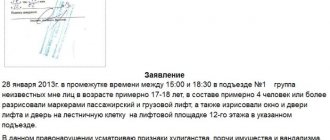It’s not just the Tax Code that sees dozens of changes per year. The Civil Code also does not go unnoticed. We often pay attention to new developments in corporate legislation; today we will talk about more ordinary things - interest for late fulfillment of a monetary obligation.
Article 395 of the Civil Code of the Russian Federation is known not only to lawyers, but also to entrepreneurs, because the rule about the need to pay penalties based on the refinancing rate has long been taken for granted. Changes to the procedure for calculating interest under Art. 395 of the Civil Code of the Russian Federation was introduced twice, with a difference of less than a year.
In order to simplify your life and protect you from mistakes in such trifles that affect the building of relationships with counterparties when formulating the terms of contracts, let us clarify some points regarding the calculation of so-called “legal interest”.
Table of contents
- Part 1 of Article 395 of the Civil Code of the Russian Federation
- Part 2 of Article 395 of the Civil Code of the Russian Federation
- Part 3 of Article 395 of the Civil Code of the Russian Federation
- Part 4 of Article 395 of the Civil Code of the Russian Federation
- Part 5 of Article 395 of the Civil Code of the Russian Federation
- Part 6 of Article 395 of the Civil Code of the Russian Federation
- Comments on the article
Positions of the highest courts under Art. 395 Civil Code of the Russian Federation >>>
ConsultantPlus: note.
The amount of interest under clause 1 of Art. 395 of the Civil Code of the Russian Federation is determined based on the wording of this norm that was in force during the corresponding period, and the reduction on the basis of Art. 333
The Civil Code of the Russian Federation is not subject to (
Review
of judicial practice of the Supreme Court of the Russian Federation No. 3 (2020)).
The procedure for collecting interest under Article 395 of the Civil Code of the Russian Federation
To collect interest under Article 395 of the Civil Code of the Russian Federation, use the following algorithm:
- Complete and send a written claim to the counterparty demanding payment of interest under Article 395 of the Civil Code of the Russian Federation. The claim must be motivated with calculation of the appropriate interest rate
- If there is no response to the claim within the period established by the contract or law, prepare a claim in court for the recovery of interest.
- After a claim for the recovery of a penalty under Article 395 of the Civil Code of the Russian Federation has been prepared, the state duty has been paid and evidence in the case has been collected, one copy of the claim should be sent to the defendant
- A copy of the claim for the court, together with the attached documents and documents on the direction of the claim to the defendant, must be transferred or sent to the court. The claim can be filed electronically through the court system
- If the court has scheduled a hearing on the claim, take part in the hearing.
- If the court has appointed the case for consideration under a simplified procedure, monitor information about the receipt of responses from the defendant and submit objections to the review in a timely manner
- After the court makes a decision to satisfy the applicant’s demands, wait until the court decision comes into force and receive a court order or an enforcement action, and then present it to the bailiffs to collect money from the defendant.
ATTENTION: under certain conditions (the amount to be collected, the absence of a dispute, etc.), a person must first apply to the court with an application for the issuance of a court order, unless of course there are no objections to the collection of interest on the part of the debtor, watch the video on how to file a claim in court:
Is it possible to reduce inflated penalty interest?
Article 395 of the Civil Code of the Russian Federation has been expanded from June 1 due to additional norms. The Civil Code of the Russian Federation now provides for the possibility of a debtor to apply to the court with a request to reduce the amount of penalties imposed on him. The new norm has something in common with the provisions on penalties. According to Article 333 of the Civil Code of the Russian Federation, when the penalty is unfairly inflated and is not commensurate with the consequences of the violation, the court reduces its amount. In this case, the plaintiff has the right to assume that the creditor intends to receive an unjustified benefit. According to paragraph 6 of Article 395 of June 1, 2015, a similar practice is now applicable to interest on monetary obligations. Excessive penalty interest can be reduced if its amount is clearly disproportionate to the consequences that resulted from failure to fulfill a monetary obligation. But the percentage specified in the agreement is reduced by the court to no less than an amount determined on the basis of the rate published by the Central Bank. Previously, % was calculated based on the refinancing rate. According to the innovations, the Central Bank now publishes average bank interest rates on household deposits.
From what day should the penalty be calculated under Article 395 of the Civil Code of the Russian Federation?
First, it is necessary to determine the day on which the obligation was to be fulfilled by the debtor. When such a day is determined and the obligation is not fulfilled on this day, then the calculation of the penalty under Article 395 of the Civil Code of the Russian Federation begins from the next day following the day when the debtor was obliged to fulfill his obligation, i.e. pay money.
At the same time, when contracts determine how many days payment must be made, it is necessary to take into account the nuances of a particular contract. For example, if a contract is concluded that provides for payment within, say, 10 days after signing the act, and the act does not include the date of signing, then in this case it is also necessary to take into account the days for acceptance, for example, 5 days, and then in total the total number of days for payment, taking into account acceptance, will be 15. We count down 15 days and at 16 we begin to accrue interest under 395 of the Civil Code of the Russian Federation.
What threatens the bank if it illegally withholds the depositor’s money and (or) interest on the deposit?
The Civil Code of the Russian Federation in Article 837 provides for three types of deposits, depending on the conditions:
- demand deposit;
- term deposit;
- deposit on other terms of return.
A deposit issued on demand must be issued to the client upon his first request. A time deposit implies the impossibility of withdrawing money from the account before the expiration of a certain period. Other conditions under which a deposit may be opened must not contradict the law. The conditions under which the bank and the client enter into a bank deposit agreement affect the relationship between the parties. The conditions determine whether the client has the right to withdraw the deposit amount from the account ahead of schedule, establish the amount of the interest rate and whether the bank has the right to change it independently. Disputes concerning the rights and obligations of the bank in relation to the client are not uncommon in judicial practice. Does the bank have the right to retain the client’s funds and in what cases? Is it possible to hold the bank accountable for such withholding? Liability for monetary obligations is provided for in Article 395 of the Civil Code of the Russian Federation. The norm of this article presupposes financial liability for the unlawful use of other people's funds. Art. 395 of the Civil Code of the Russian Federation was supplemented with three new paragraphs from June 1, 2015. According to the innovation enshrined in paragraph 5, it is unacceptable to accrue compound interest without a direct indication of this in the law. Compound interest is interest compounded on interest. This issue, which previously caused a lot of controversy, has now been regulated by law. So, what action can be taken against a bank that wrongfully withholds a client’s money? Let's consider different situations:
- The client asserts his right to early return of money (his right to this is provided for in the contract), and the bank continues to withhold the funds. Then interest may be charged on the deposit amount for the use of other people's funds. They will begin to accrue from the day the client requested his money, and the bank will be obliged to pay it. % will continue to accrue until the day of actual payment (unless otherwise stated in legal acts or agreement). Interest is paid after the principal amount.
- The bank unilaterally unlawfully reduced the amount of interest due under the agreement. In this case, interest on the lost amount of the client’s deposit may be charged for the use of other people’s funds. The bank has worsened the terms of the client’s deposit, so he has the right to immediately return the entire amount, interest and compensation for losses.
- The bank unlawfully withholds the client’s funds, while there is unclaimed interest on the deposit. According to Article 839 of the Civil Code of the Russian Federation, interest is paid to the client separately from the deposit amount (unless otherwise stated in the agreement). If % remains unclaimed, then they increase the deposit amount. This means that if the bank is late in returning the deposit, that is, it used someone else’s funds, then it is obliged to pay interest. Interest will then be accrued not on the original deposit amount, but on the deposit amount plus interest not claimed by the client.
- The bank does not fulfill its obligation to return the client's cash deposit. The court obliges the bank to pay the funds along with the interest due, but the bank also does not comply with the court’s demands. Judging by the materials of judicial practice, bank clients (plaintiffs) in such cases usually believe that they have the right to demand recovery from the bank of interest for the use of other people's funds, accrued on the amount of the deposit and on interest, but this is not so. Article 395 of June 1, 2015, in paragraph 5, establishes that without an indication in the law, the calculation of interest on interest is impossible. So in this case, the client can only count on interest accrued on the amount of the principal debt, as well as compensation for losses caused.
For unlawful withholding of depositors' money, be it the deposit amount itself or the amount of interest on the deposit, the bank can be held liable. If the client goes to court, the bank will be charged the debt to the depositor, interest for the use of his funds and, in case of damage, damages will be collected.
Article 395 of the Civil Code of the Russian Federation. Liability for failure to fulfill a monetary obligation (current version)
1. Special rules regarding the amount of liability for failure to fulfill a monetary obligation are established in Art. 395 of the Civil Code of the Russian Federation.
At the same time, failure to fulfill a monetary obligation in paragraph 1 of the commented article means unlawful withholding of funds, evasion of their return, other delay in their payment, unjust receipt or savings at the expense of another person. All these actions are qualified as unlawful use of other people's funds.
For the unlawful use of someone else's funds, interest is charged on the amount of these funds. The amount of interest is determined by the key rate of the Bank of Russia in force during the relevant periods. These rules apply unless a different interest rate is established by law or agreement.
The concept of the key rate replaced the previously used concepts of the discount rate and refinancing rate. The key rate is the interest rate on the main operations of the Bank of Russia to regulate the liquidity of the banking sector. It was introduced by the Bank of Russia on September 13, 2013. In other words, it can be defined as an invitation addressed to commercial banks to enter into a transaction to provide liquidity (loan agreement) on the terms of the percentage specified in it.
Sources of information about the key rate of the Bank of Russia are the official website of the Bank of Russia on the Internet and the official publication of the Bank of Russia “Bulletin of the Bank of Russia”.
Interest for the use of other people's funds is considered as a special form of liability for a civil offense, and for the same offense a penalty may be established by law or contract.
2. According to paragraph 2 of Art. 395 of the Civil Code of the Russian Federation, if the losses caused to the creditor by the unlawful use of his funds exceed the amount of interest for the use of other people's funds, he has the right to demand compensation for losses from the debtor.
At the same time, according to paragraph 41 of the Resolution of the Plenum of the Supreme Court of the Russian Federation dated March 24, 2016 N 7 “On the application by courts of certain provisions of the Civil Code of the Russian Federation on liability for violation of obligations,” the amount of interest established by Article 395 of the Civil Code of the Russian Federation is counted towards the amount of losses caused by non-fulfillment or improper fulfillment of a monetary obligation (clause 1 of Article 394 and clause 2 of Article 395 of the Civil Code of the Russian Federation).
Thus, interest on the use of someone else’s money differs from a penalty, which in certain cases may be charged in addition to losses.
3. In accordance with paragraph 3 of Art. 395 of the Civil Code of the Russian Federation, interest for the use of other people's funds is charged on the day the amount of these funds is paid to the creditor, unless a shorter period is established by law, other legal acts or agreement. Considering that the concept of “payment day” was interpreted differently in judicial practice, in paragraph 51 of the Resolution of the Plenum of the Supreme Court of the Russian Federation and the Supreme Arbitration Court of the Russian Federation dated July 1, 1996 N 6/8, the attention of the courts was drawn to the fact that “interest is subject to payment for the entire period of use of someone else’s funds until the day of actual payment of these funds to the creditor.”
4. According to paragraph 4 of Art. 395 of the Civil Code, in the event that the agreement of the parties provides for a penalty for non-fulfillment or improper fulfillment of a monetary obligation, the interest provided for in this article is not subject to collection, unless otherwise provided by law or agreement. Thus, the possibility of double punishment for the same offense is eliminated.
There is a similar provision in paragraph 42 of the Resolution of the Plenum of the Supreme Court of the Russian Federation dated March 24, 2016 N 7 “On the application by courts of certain provisions of the Civil Code of the Russian Federation on liability for violation of obligations” (as amended on February 7, 2017), which established that if by law or agreement If the parties have established a penalty for violation of a monetary obligation, which is subject to the rule of the first paragraph of paragraph 1 of Article 394 of the Civil Code of the Russian Federation, then the provisions of paragraph 1 of Article 395 of the Civil Code of the Russian Federation do not apply. In this case, the penalty established by law or agreement of the parties is subject to recovery, and not the interest provided for in Article 395 of the Civil Code of the Russian Federation (clause 4 of Article 395 of the Civil Code of the Russian Federation).
5. According to the general rule of paragraph 5 of the commented article, the accrual of interest on interest (compound interest) is not allowed, however, otherwise may be established by law.
At the same time, in relation to business activities, the accrual of compound interest can be established not only by law, but also by agreement.
6. In accordance with paragraph 6 of the commented article, if the amount of interest payable is clearly disproportionate to the consequences of the violation of the obligation, the court, at the request of the debtor, has the right to reduce the interest provided for in the agreement, but not less than to the amount determined by the key rate of the Bank of Russia.
Comment source:
“CIVIL CODE OF THE RUSSIAN FEDERATION. PART ONE. ARTICLE-BY-ARTICLE COMMENT"
S.P. Grishaev, T.V. Bogacheva, Yu.P. Sweet, 2019
Simultaneous collection of penalties and interest
The law prohibits the calculation of compound interest, i.e. It is not possible to calculate interest on an accrued amount of interest.
Collection of penalties and interest under Article 395 of the Civil Code of the Russian Federation is not carried out simultaneously. If the contract involves the payment of a penalty, then this is the way to compensate for financial losses. An exception may be a special agreement, which is documented and stated in the contract. Such cases are considered individually and in strict accordance with the current provisions of the law.







